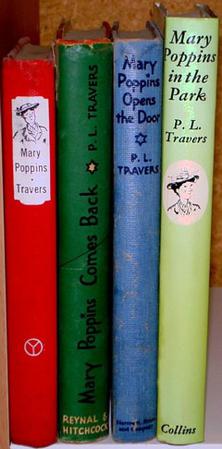Rating: ★★★★★
Method of Reading: Personally owned paperback novel, 281 pages (Also, my first purchase from Half Price Books!
http://www.hpb.com Many thanks to the Goldsmith family who donated it to this secondhand book store--your name is still on the book)
Dates of Reading: June 20, 2013-June 25, 2013
Author: Harper Lee
Publication Year: 1960
Quotes:
"Atticus told me to delete the adjectives and I'd have the facts" (59).
"'People in their right minds never take pride in their talents,' said Miss Maudie" (98).
"'They're certainly entitled to think that, and they're entitled to full respect for their opinions,' said Atticus, 'but before I can live with other folks I've got to live with myself. The one thing that doesn't abide by majority rule is a person's conscience'" (105).
"I wanted you to see something about her--I wanted you to see what real courage is, instead of getting the idea that courage is a man with a gun in his hand" (112).
"I began to think there was some skill involved in being a girl" (116).
"Somewhere, I had received the impression that Fine Folks were people who did the best they could with the sense they had" (131).
"A mob's always made up of people, no matter what" (157).
"Some folks don't--like the way I live. Now I could say the heck with 'em, I don't care if they don't like it. I do say I don't care if they like it, right enough--but I don't say the heck with 'em, see?" (200)
"'This is their home, sister,' said Atticus. 'We've made it this way for them, they might as well learn to cope with it'" (212).
"It's not time to worry yet" (213).
"'I always thought Maycomb folks were the best folks in the world, least that's what they seemed like.'
'We're the safest folks in the work,' said Miss Maudie. 'We're so rarely called on to be Christians, but when we are, we've got men like Atticus to go for us'" (215).
"...we're paying the highest tribute we can pay a man. We trust him to do right" (236).
Movie: A beloved classic. Which I sorta remember watching in middle school. Maybe I should look into that again.
Wikipedia Link: https://en.wikipedia.org/wiki/To_Kill_a_Mockingbird
Link: http://www.universalteacher.org.uk/gcse/mockingbird.htm
My View: I read this right before
Extremely Loud and Incredibly Close and I'm writing their reviews on the same day, so a natural comparison has to emerge. First off, which did I like better?
To Kill a Mockingbird is an established classic, but a classic isn't always that good (see "
Wuthering Heights"). Meanwhile Jonathan Safran Foer is emerging on the world literature stage and
Extremely Loud could be the first book of his that is deemed a "great American novel" for its early and honest treatment of the 9/11 disasters. To even them out, I asked myself, "If both books came out last year, which would I predestine for high school literature syllabi in 2050?" Then I realized that neither book would have been published last year. Although
Extremely Loud and Incredibly Close could probably have been bought and published, it would not have had nearly the same cultural and emotional impact or gotten the same literary attention if it came out in 2012 (it was released in 2005). Over a decade after the Sept. 11 attacks, it is relevant and moving (check my post: clearly I was shaken by it) but not unprecedented. While it would still be an achievement, its edge would have worn off. Similarly, but to a much larger degree,
To Kill a Mockingbird would not have been applauded in the same way if published after the 1970s, perhaps, but the cultural impact would have been far lesser. Ignoring the near impossibility of a situation where both of these books were published in 2012, I think I would have been more thrilled by
Extremely Loud, but
Mockingbird would have made a greater impression on me. Both books are emotionally impactful and leave a scholarly/mental impression, but only
To Kill a Mockingbird made me change how I live. I changed my worldview from reading
Extremely Loud and Incredibly Close, but Lee makes me think not only about the world I live in, but also about
how I live in it. Lessons from this book have been reverberating in my mind ever since first reading
Mockingbird seven years ago, including several quotes I pull out of my back pocket every so often when I need some inspiration.
Is that enough of a recommendation for this book?
Always,
Your Bibliomaniac
Bibliographic info:
Lee, Harper. To Kill a Mockingbird. Philadelphia: Lippincott, 1960. Print.









